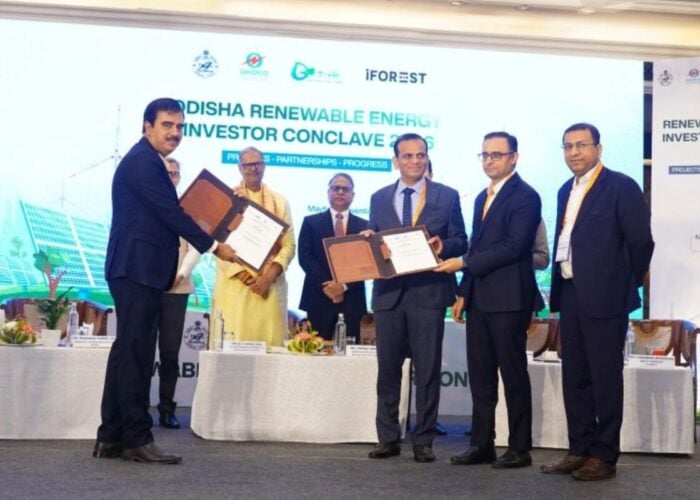
India has given the option to solar power procurers to extend project commissioning timelines, which should help developers working on interstate transmission system (ISTS)-connected plants.
The new guidelines from the Ministry of Power are not mandatory and would not apply to PV capacity that has already been bid out in reverse auctions. However, they do give the likes of Solar Energy Corporation of India (SECI) and state-run utility NTPC the option to extend:
Try Premium for just $1
- Full premium access for the first month at only $1
- Converts to an annual rate after 30 days unless cancelled
- Cancel anytime during the trial period
Premium Benefits
- Expert industry analysis and interviews
- Digital access to PV Tech Power journal
- Exclusive event discounts
Or get the full Premium subscription right away
Or continue reading this article for free
- land acquisition periods from seven to 12 months
- financial closure periods from seven to 12 months from the date of execution of the PPA
- project commissioning timeframes from 13 months to 21 months, from the date of execution of the PPA
- projects of >250MW capacity commissioning timeframes from 15 months to 24 months, from the date of execution of the PPA
Mudit Jain, consultant at Bridge to India, told PV Tech the move came in response to multiple developers approaching the Ministry of New and Renewable Energy (MNRE) calling for more time to carry out ISTS-connected projects.
“You need to acquire more than 1,000 acres of land, which is not possible in the given timeframe, plus transmission line connectivity will take time,” said Jain.
When asked if the extra time would have an impact on project quality, Jain said it was unlikely to make a difference, because EPC services are still likely to be carried out in the same timeframes towards the end of the development process. ISTS-connected projects tend to be outside solar parks and go back to the model of developers having to secure their own land and transmission connectivity. Thus, the main advantage of the new guidelines is extra time for these challenges rather than for EPC activities.
Finally, Jain said that if the forward trajectory of module prices supports falling prices, then developers are likely to continue the trend of procuring modules as late as possible to secure the lowest prices.
The multi-gigawatts of ISTS-connected tenders have been seen as a chance for classic private equity-backed India developers to participate, given the added risks of land and transmission responsibility lying with the developer.
This week, SECI’s 2GW ISTS-connected solar tender was oversubscribed by 1.8GW, with ReNew Power, Softbank, Fortum, hero, Azure, Acme, Shapoorji Pallonji, Adani, Mahindra, and EDEN all in the running.
In other news, MNRE has recently released new Renewable Purchase Obligation (RPO) targets up to the year 2022, which can be found here.






